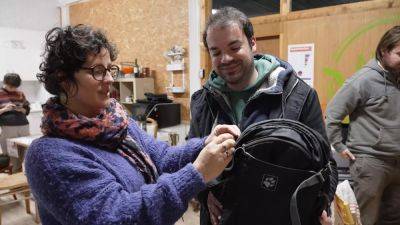Will North Macedonia be able to quit dirty coal?
Despite a pledge to become the first coal-free country in the Western Balkans, North Macedonia has extended the closing date of its coal-fired power plants several times. Click on the video above to watch the report.
A cloud of thick smoke continuously escapes from the Bitola coal-fired power station. North Macedonia has two coal hubs - REK Bitola and REK Oslomej. 47 per cent of the country’s electricity is produced by burning dirty lignite.
The brown material is extracted from huge opencast pits close to the coal power stations built some 40 years ago. According to Pece Matevski, director of REK Bitola, another coal mine is expected to open.
North Macedonia intended to phase out coal by 2027. But the energy crisis has prompted the country of 2 million inhabitants to change its plans. It is now expected to quit coal by 2030.
In the capital, Skopje, Nevena Smilevska is an energy transformation campaigner at the NGO CEE Bankwatch. She is worried about the impact of further delays on the country’s potential accession to the European Union.
“The date of closure needs to remain 2030. It is very unlikely that we will be allowed to disregard the European Green Deal,” she explains.
“If the EU accession does happen, we will have to close the power plants before we accede,” she adds.
As lignite reserves (referred to as brown coal) are running out, the country has to import coal from neighbouring countries. A strong reliance on fossil fuels does not improve air quality.
In 2022, the Bitola coal plant had the highest SO2 and dust emissions in the Western Balkans region. 111.000 tons of SO2 were emitted - 17 times more than allowed.
Yet, the country’s average of 280 days of sunshine provides ideal conditions for the production of solar








